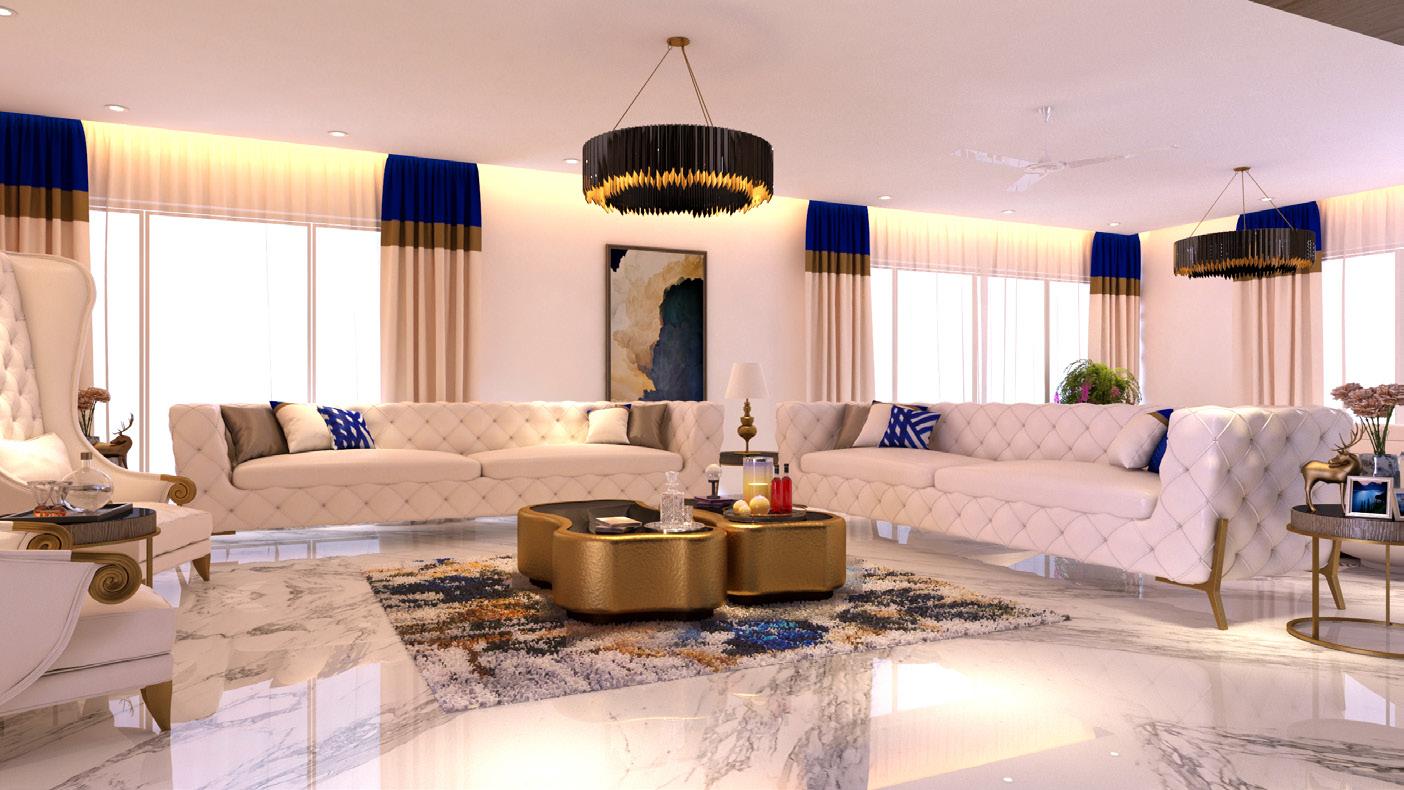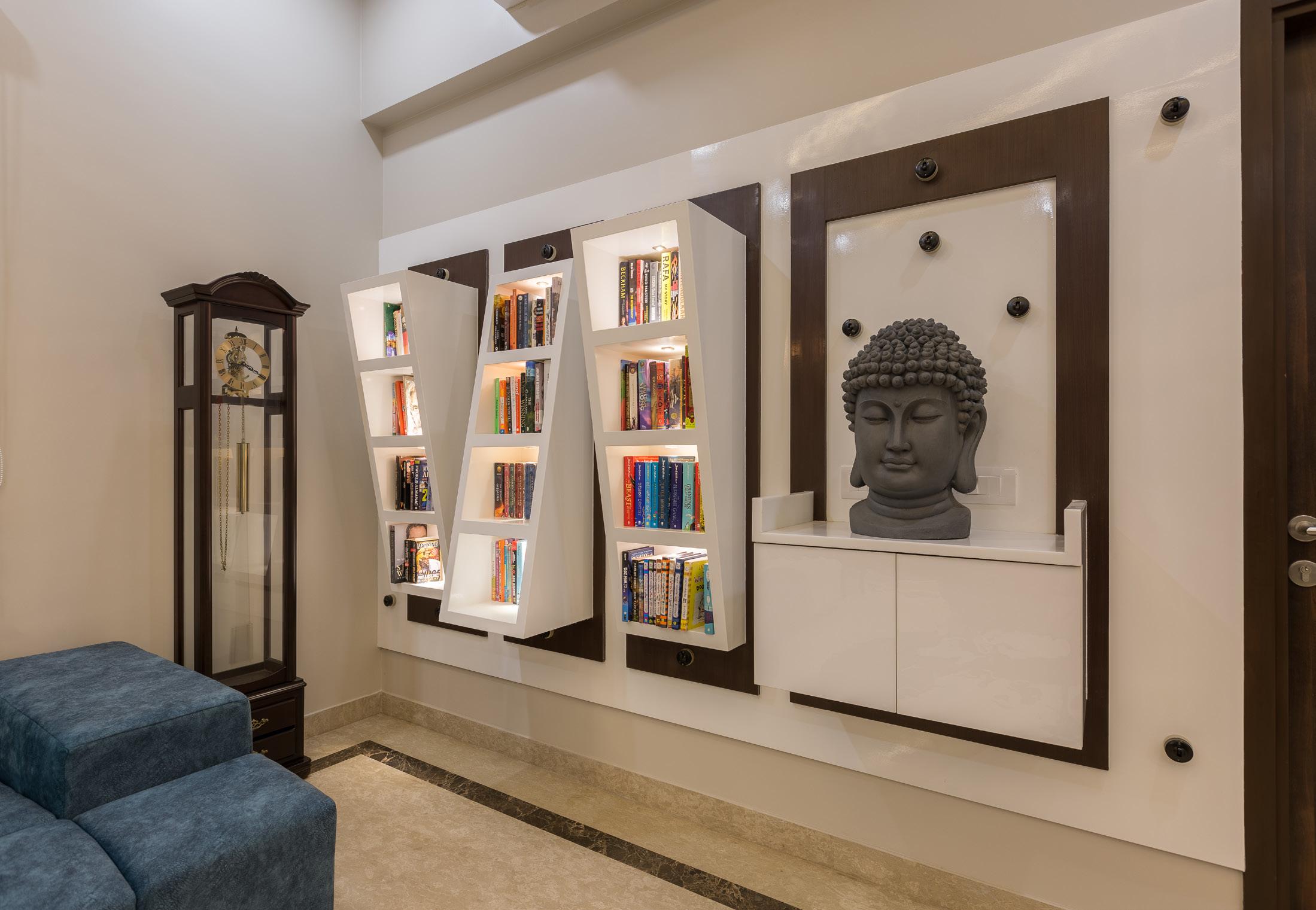
5 minute read
Choosing to Challenge
from SEEMA Magazine
by SEEMA
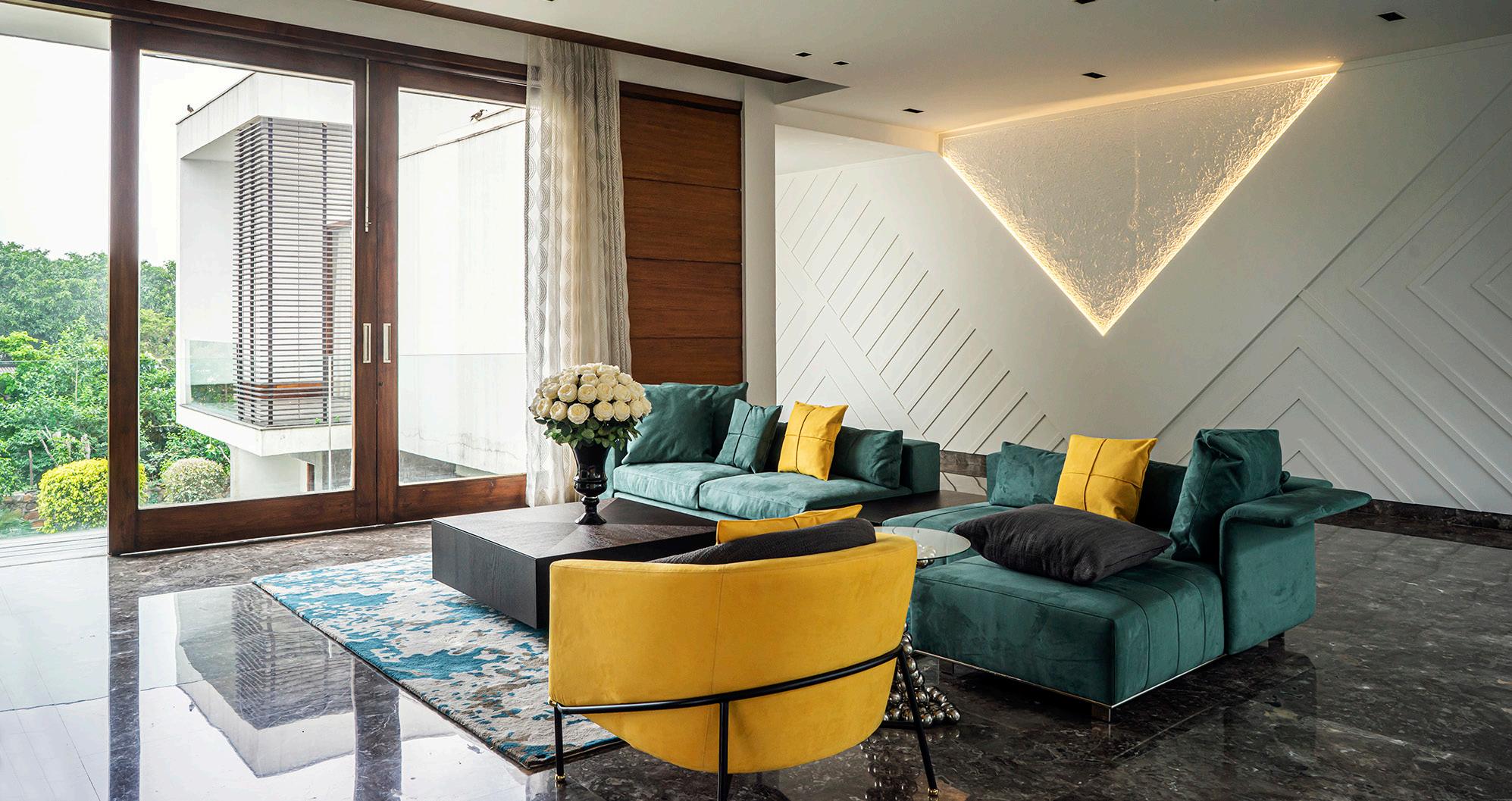
WOMEN ARE LEAVING THEIR IMPRIMATUR ON ARCHITECTURE AND DESIGN
BINDU GOPAL RAO
Come March and the buzz around International Women’s Day gets louder. And women who need no one day to celebrate their femininity are breaking gender stereotypes, becoming entrepreneurs in traditionally male sectors. We speak to three such women to understand their journey and the lessons they have learned.
AASHITA CHADHA, CFO AND CO-FOUNDER, THE KARIGHARS Before co-founding The KariGhars, Chadha, who has a bachelor’s degree in electronics from the University of Pune, worked as an engineer in reputed IT firms such as Tata Consultancy Services.
“As a child, I loved to design new things and come up with ideas to tackle problems at hand uniquely.... My love for all things new and artistic was passed down by my mother. She encouraged me to think outside the box and tackle all issues with a touch of inventiveness,” Chadha says.
But it was her own experience while getting her house designed by an interior designer that sent her down another path in design.
“The field needs a robust level of professionalism and transparency, which, we have observed, is missing,” Chadha says, describing the stress she experienced 12 years ago when getting her own house done.
So she and her husband started ‘The KariGhars,’ a company that does turnkey projects for villas and apartments. They also customize wardrobes, entertainment units, modular kitchens and built-in furniture to fit the space and style of a project. She admits that when she started a decade ago, it was tough to get people to take her seriously.
“It was an uphill task to make the men, especially laborers and craftsmen, take orders from a lady boss,’ Chadha says. “But now things have changed significantly, and women are being heard. What you bring to the table is important, and gender bias is definitely a thing of the past.”
Celebrating the freedom to #ChoosetoChallenge she says that she would challenge the existing gender norms and dichotomies that exist in the world.
“Being successful in my professional while balancing it with my personal life and family is a testament to the fact that women are more than just pretty faces who also do household work,” she says.
As an entrepreneur and interior designer, she plans to focus on implementing sustainable and eco-friendly designs in every home.
She tells young women seeking to be entrepreneurs to not shy away from risks if they really believe in what they do.
“Shed your inhibitions and conquer the world with your skills and humility,” Chadha tells them.
Still, it has been a stressful year, one dominated by the pandemic.
Chadha says that over the year she has learned to “live in the moment. The future, whatever it may be, will be good only if we make the most of the present.”
SHIVANI KHANNA, CO- FOUNDER AND PRINCIPAL ARCHITECT, STUDIO CRYPT The institutional and residential architect has made a name for directing an environmentally conscious architectural practice, producing aesthetically versatile architectural spaces, emphasizing an understated luxury, while still being mindful of the need for sustainability. Armed with a master’s degree in sustainability from the University of Auckland, Khanna’s interest in entrepreneurship in architecture and design was sparked in high school when she saw her father begin constructing his house.
She was hooked by architecture
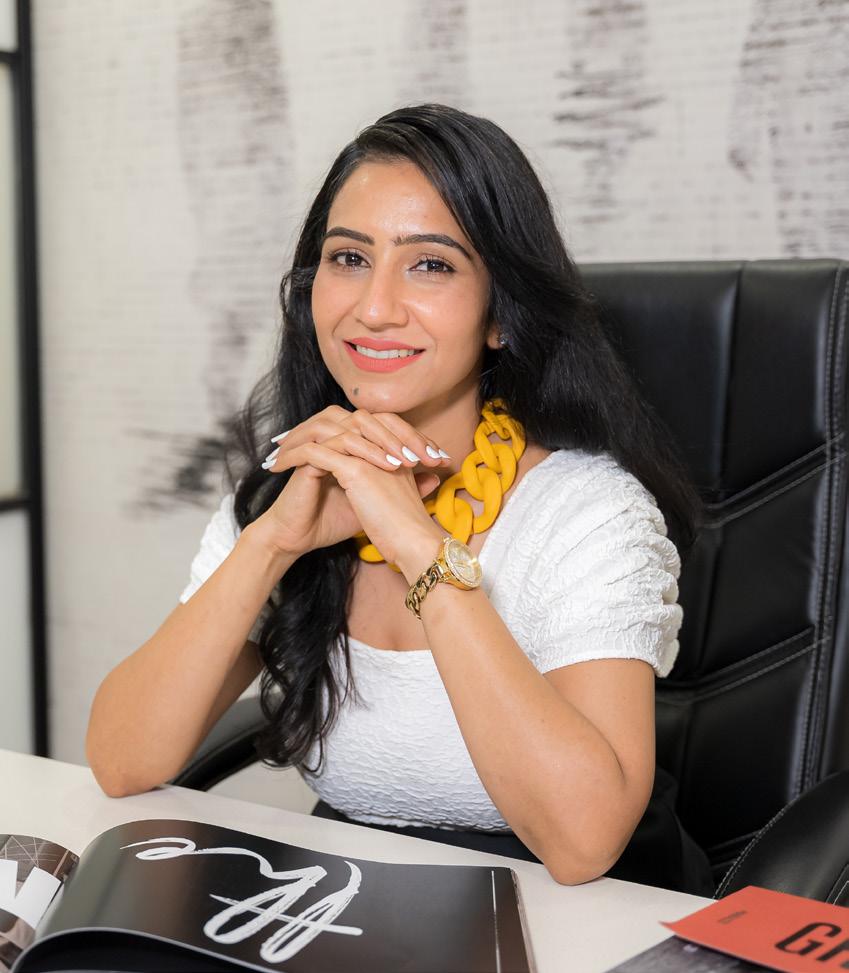
SHIVANI KHANNA
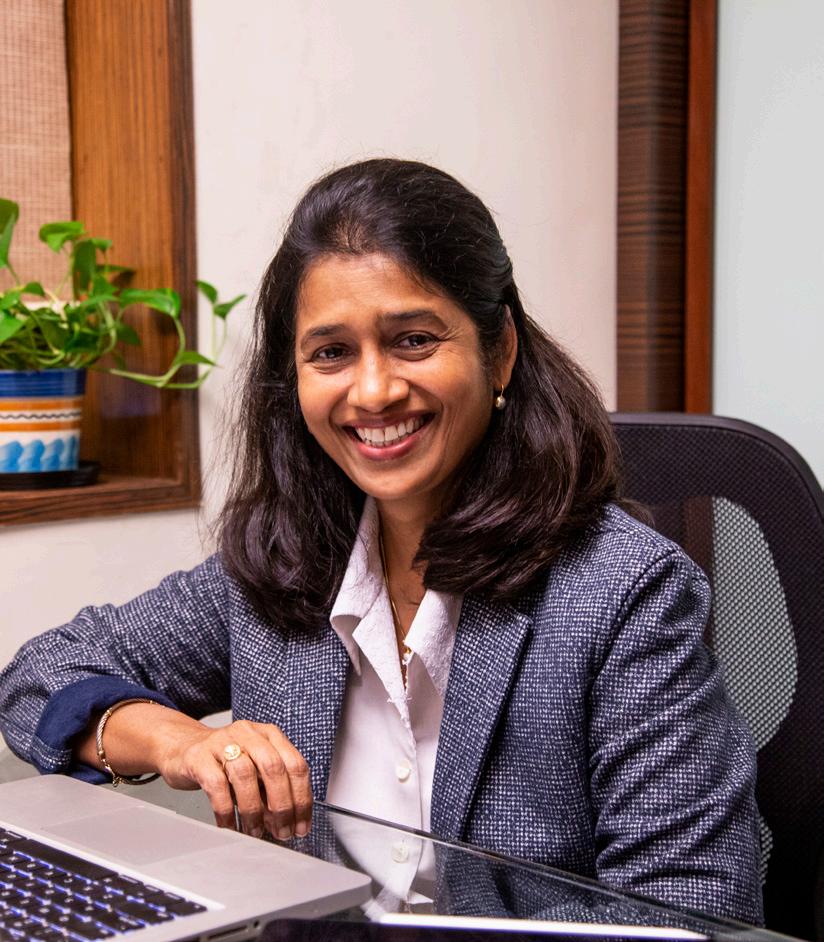
and design when she realized its significance. Studio Crypt was established in 2018.
“We intend to break the misconception of ‘luxury for the rich,’” she says, describing her team members as holding their high in a male-dominated field. “The team at Studio Crypt is on a mission to design affluent buildings and spaces. We also undertake development in rural areas, with the most recent being designing the Sainik Dwar for the village of Kutubpur in U.P.” As an architectural practice that celebrates sustainable construction design, Khanna’s firm provides environmentally sound, energy efficient, solutions that keep climate change in mind.
As someone who believes that a good entrepreneur needs a good support system at professional and personal life, she says her family is her cheerleader.
Her inspirations are other noteworthy women architects, such as Anupama Kundoo and Brinda Somaya. “My greatest learning comes from working with noted architect Sanjay Prakash in my formative years,” she says, adding that she learned many unwritten rules of business from her father.
Her advice to young women who are aspiring entrepreneurs is to be a disruptor, saying, “You need to be an element of change since women are intrinsically perfectionists and efficient multi-taskers.”
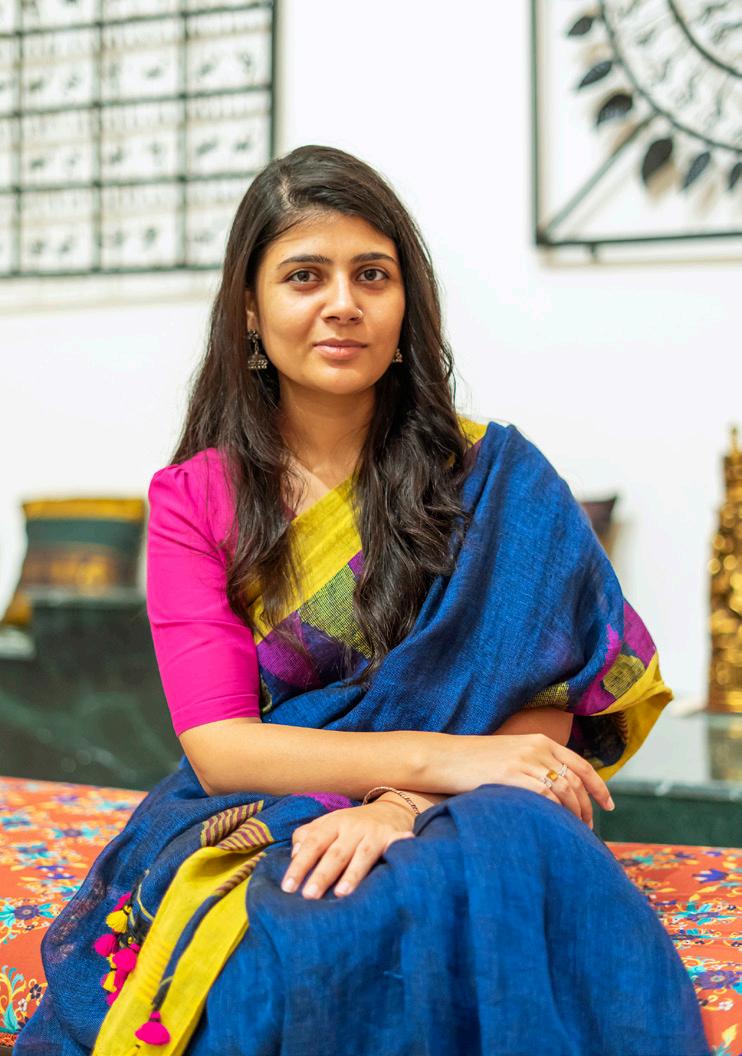
SUJATA CHITALWALA, PRINCIPAL DESIGNER AT DESIGNERS GROUP
Chitalwala initially trained as a textile designer when she graduated with a degree in interior designing from Rachana Sansad college in Mumbai, India.
“I always had an eye for aesthetics and a flair for people management,” she says.” This has helped me position myself perfectly in the Designers Group, managing and guiding the design team.” Her work ethic resonates with the values she learned in childhood: to hold on to her roots and practice pragmatism.
“This has led me to appreciate a simpler approach towards design,” she says. “I firmly believe that simplicity creates a space for creativity to shine.”
She started Designers Group in 1989 with her husband Khozema Chitalwala, aiming to make it a holistic consultancy for the hospitality sector.
Being a principal female leader is a challenge, Chitalwala says, adding that defying social expectations, and balancing work and family life are questions that need to be addressed.
“Women entrepreneurs are still way too few in architecture,” she says. “The perception in the industry about women has seen a massive transformation over the years. I realize it was a culture that has been hundreds of years in the making, but it only takes a few progressive thought leaders to fix it in their office.”
SUJATA CHITALWALA
